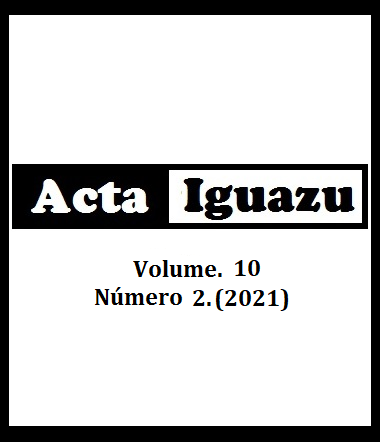Comparison of lots of pea seeds produced in northwest of Paraná
DOI:
https://doi.org/10.48075/actaiguaz.v10i2.26847Palavras-chave:
Germination, Pisum sativum, seed qualityResumo
The establishment of the crop demands the use of seeds that allow the plants to perform better in adverse conditions. The study aimed to compare lots of pea seeds produced in the northwestern region of Paraná. The experiment was carried out in a completely randomized design with seven seed lots and four replications. The seeds were obtained in field production, with similar management conditions. The determination of the weight of a thousand seeds, water content, electrical conductivity, percentage of germination, fresh and dry mass of the aerial part and root of the seedlings performed. The data were subjected to analysis of variance and the means compared by the Tukey test with 5% significance. The physiological potential not directly related to the seed mass; of the pea lots produced under adverse conditions, lots L3 and L4 showed superior quality. The physiological tests of electrical conductivity and germination differentiated the quality of the seeds. According to the selection criteria, the seeds of four pea lots showed germination higher than 85%, being the seeds of the lot L3 and L4 presented superior quality.
Downloads
Publicado
Como Citar
Edição
Seção
Licença
Aviso de Direito Autoral Creative Commons
Política para Periódicos de Acesso Livre
Autores que publicam nesta revista concordam com os seguintes termos:
1. Autores mantém os direitos autorais e concedem à revista o direito de primeira publicação, com o trabalho simultaneamente licenciado sob a Licença Creative Commons Attribution que permite o compartilhamento do trabalho com reconhecimento da autoria e publicação inicial nesta revista.2. Autores têm autorização para assumir contratos adicionais separadamente, para distribuição não-exclusiva da versão do trabalho publicada nesta revista (ex.: publicar em repositório institucional ou como capítulo de livro), com reconhecimento de autoria e publicação inicial nesta revista.
3. Autores têm permissão e são estimulados a publicar e distribuir seu trabalho online (ex.: em repositórios institucionais ou na sua página pessoal) a qualquer ponto antes ou durante o processo editorial, já que isso pode gerar alterações produtivas, bem como aumentar o impacto e a citação do trabalho publicado (Veja O Efeito do Acesso Livre).
Licença Creative Commons
Esta obra está licenciada com uma Licença Creative Commons Atribuição-NãoComercial-CompartilhaIgual 4.0 Internacional, o que permite compartilhar, copiar, distribuir, exibir, reproduzir, a totalidade ou partes desde que não tenha objetivo comercial e sejam citados os autores e a fonte.


